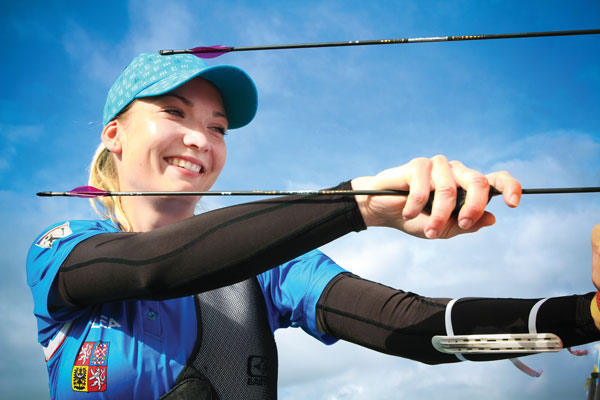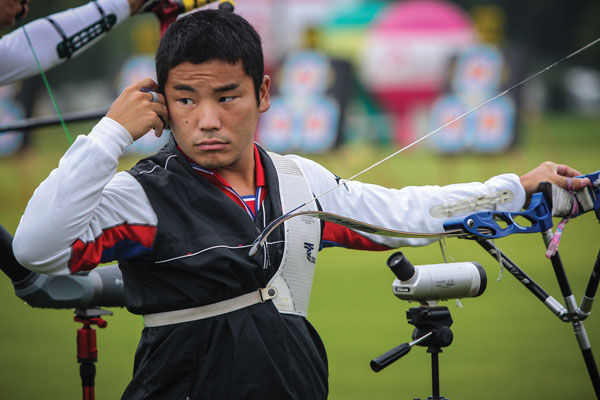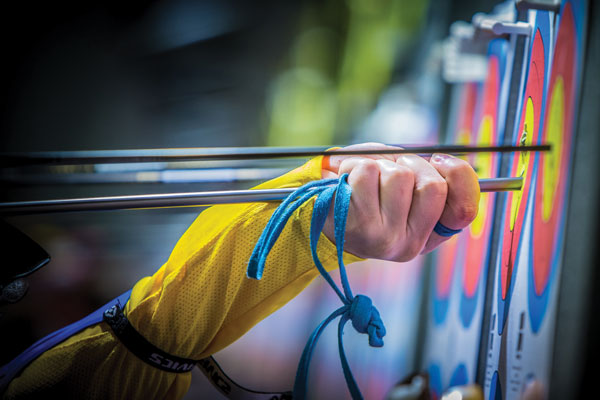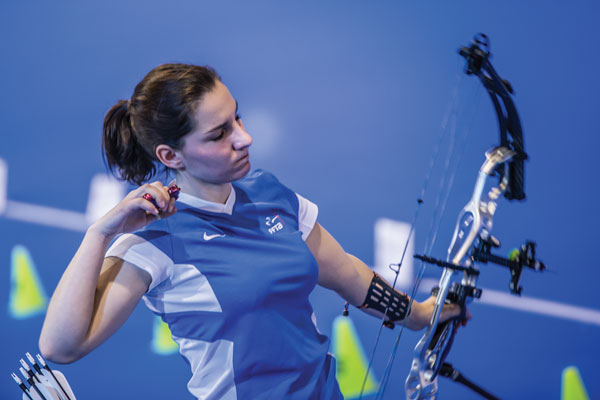
All archers will experience setbacks in their shooting career, says Lucy O’Sullivan, the trick is knowing how to handle them
We have all had some setbacks in archery; it is totally expected in your career as part of progressing as a sports person. “Getting knocked down in life is a given. Getting up and moving forward is a choice.” So how do we handle setbacks, and what can be done to limit them?
Firstly, what can we class as setbacks? Essentially, these include things such as equipment failure, having a bad competition result, or even things such as having to take time off for whatever reason; be it family, illness or injury.
Having a bad shoot
This is probably the most common problem in archery, and one every competitive archer will be familiar with. However, it is possible to learn how to recover from having a bad competition day. One of my favourite athletes, Roger Federer, uses the phrase “Failure is feedback.” This refers to the idea that failure provides feedback from a negative experience so that you can make any adjustments in your shot process or to your equipment to make it better.
These changes will quickly get you back on the proper path towards your goals. However, without awareness of your own weaknesses, you will continue to do the same things, make the same mistakes time after time, and spiral downward. So, think that “Failure is breakfast for champions” which refers to the fact that in order to learn, you must first fail in order to learn better methods. Sit down with your coach, experiment with your equipment or technique, and be curious. Of course, failure will sometimes happen with some experimentation, but so will success!
It’s important to notice your emotions and feelings after a bad day too. You deserve to be disappointed and even angry after a setback, however, this does not have to be a permanent state. The sooner you calm down the quicker you can begin to work through the things that may have gone wrong.
One of my favourite athletes, Roger Federer, uses the phrase “Failure is feedback.”
You may have shot below par today, but that doesn’t mean you will shoot badly every day. If you lost, you are not a loser – you simply lost today; tomorrow is another day with another opponent. Additionally, it’s vital to understand that your main opponent is yourself, and that the competition helps you gauge your progress so you can improve. Understand that you are a work in progress, so that it opens the door for improvement, change, and different results.
Getting back to archery after injury or time out
This is a difficult one to come back from, usually because of the physical and mental problems of having an injury. The main thing to remember is to take your time. Make a plan – do not push yourself to shoot too quickly, too soon, or even to shoot too many arrows too soon. You must first accept the injury and follow a recovery and rehabilitation plan, and set your sights on the future.

Absolutely no-one has had every single competition result go their way – a bad day doesn’t mean you’re a bad archer
It can be hard, especially if, for example, you were consistently winning your local events. Know that with an injury this will not be the case straight away upon returning to archery. No matter where you used to be and where you are now, the only thing that matters is that you’re on that archery field, and you are trying. You don’t have to go straight back in at the level you were, it’s about going through your process and trying.
View each problem or challenge as an opportunity to persevere and overcome. Make sure that with injury you are being looked after, with a good physiotherapist, someone that can massage the tight muscles, and give you exercises to ensure the weak muscles get stronger to fix the reasons for why an injury occurred.
After a time out with family problems, for example, remember that emotional or life stress can take a toll on your athletic endeavors. So as athletes, we must integrate our personal and professional lives with our athletic lives. Any situations can be prioritised for your life so you can act accordingly, and know that archery will always be there for you when it is time to return.
Don’t be so tough on yourself
Setbacks often happen when we don’t adapt to new situations. For example, it is always difficult for juniors moving to the senior level; you cannot expect greatness straight away, you must learn that failure will happen more than success, and moving to a harder level in archery (or any sport) is always difficult. Know that this will happen, and that with archery time is on your side.
In fact, this applies to all manner of problems we as archers encounter – no matter the setback, with archery, we have time. It is not like we are in a sport such as, say, gymnastics, where a lot of competitors retire by 18 years old. That is one of the most important things I remember in my sport, no matter how many years it takes me to be “great” again, I know that time is on my side.

If you were used to winning your local events before an injury, it can sometimes be hard to adjust to your new situation
As long as you stay healthy and strong you can re-start archery at any time or stage in your life. Here are just a few tips for not being hard on yourself. Firstly, don’t be afraid of failure, some of the most successful athletes in the world did not win many events straight away, or even that many events very often.
Just think, if you don’t shoot, you will never win, so sign up and have fun. Secondly, remember that every season brings a new challenge, your goals should therefore change from year to year, so define success in your own terms based on your own goals.
And lastly, wisdom is knowledge gained through experience. Accept knowledge from those who are willing to share it, and learn what will work for you and what won’t. Happy shooting.
Words: Lucy O’Sullivan
This article originally appeared in the issue 116 of Bow International magazine. For more great content like this, subscribe today at our secure online store www.myfavouritemagazines.co.uk


